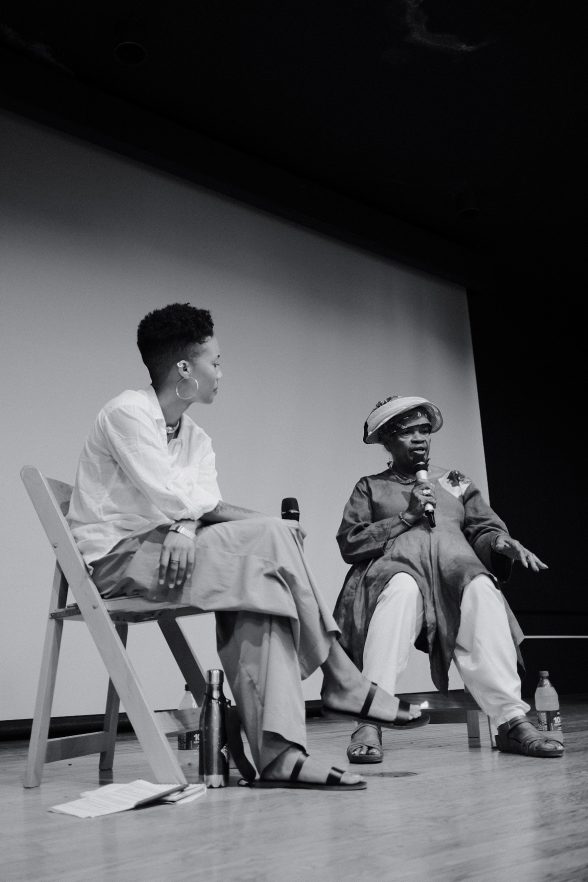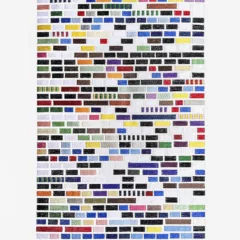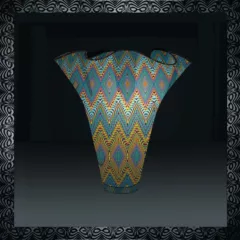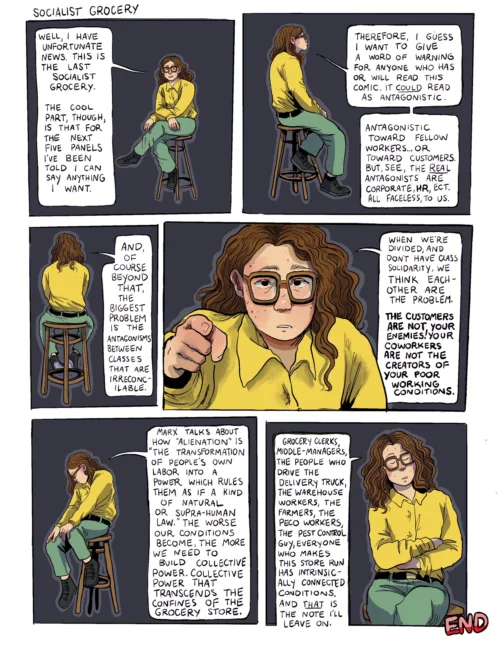
On the first day of the 11th Blackstar Film Festival I found myself sitting with fiber artist, Betty Leacraft outside the auditorium at the Penn Museum awaiting the arrival of Dindga McCannon, who was to be interviewed by Dessane Lopez Cassell (editor of Seen, published by Blackstar Projects). Dindga and Betty are colleagues and contemporaries, women who have made their own paths as artists, enduring the headwinds of racial and gender prejudices and skepticism about the position of craft within the wider art world. Dindga arrived in a stunning, tomato-red linen tunic, which she had not made, she said, but had added an applique to the shoulder: one of her characteristic women with hair flying in the wind.
The audience that assembled clearly included many other fiber artists and younger women who saw Dindga as a revered model. I knew the artist’s work and wasn’t surprised that she had the same warmth, liveliness, and concern for the larger community that I’d seen in her paintings, sculpture and figurative textile hangings. The interview began with Dindga saying she knew she wanted to be an artist from the age of ten, and much of the conversation reflected the grit and entrepreneurial skills she employed to support her artistic work. When she found that there was more of an audience for wearable art than for paintings, she produced art to wear and sold it by traveling across the country to any venue that seemed promising. When the children’s book that she wrote and illustrated sat in the warehouse, ignored by the publisher, she brought copies with her and marketed it herself.
McCannon was involved with groups of like-minded women throughout her career, being a founding member of the Weusi and Where We At collectives, which helped their members with babysitting and money, as needed, in addition to more traditional benefits of art collectives in the form of group exhibitions, supportive critiques, collaborative murals and grant opportunities. Both collectives were featured in the 2018 Brooklyn Museum of Art exhibition “We Wanted A Revolution: Black Radical Women 1965-1985,” which was supported by two publications that are essential for anyone wanting to research work by Black women in the period (They were reviewed on Artblog here.)
McCannon, who was born in Harlem and whose work was always focused on Harlem, moved to Philadelphia eight years ago. She has a garden for the first time ever, and when someone questioned whether the move meant she was isolated from her old community she said she had more studio time. Someone else asked Dingda whether she had ever thought of giving up art in the face of the difficulties it brought. Once, she said, but that lasted perhaps 24 hours. What else could I do? she asked. When asked what she thought her legacy would be she said that if you want something enough and are willing to work endlessly without any rewards, then go for it. Then another audience member asked about what she now wanted to do, given her recent visibility and success. Stay in my studio. That was always my priority.
There was a touching moment when a man who knew her as a neighbor in Germantown said if he’d known how accomplished and well-known she was, he’d have been intimidated and never talked to her. But she never let on and acted like everyone else. He was clearly delighted to see her as the focus of a crowd of admirers.








